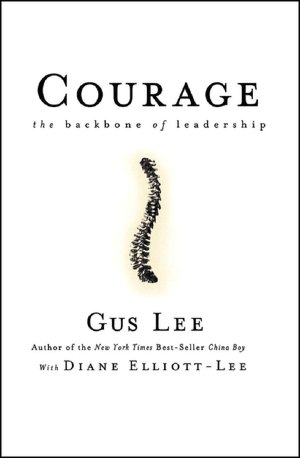There is no doubt that courage is central to leadership, and Lee's book emphasizes that over and over. At one point in the book, Lee describes a class he once had with Major H. Norman Schwarzkopf, the future general, as his teacher. Schwarzkopf gave the class this scenario:
"Imagine that you and your troops for which you are responsible are on an international border. The enemy can cross it and strike at you with impunity. But you can't cross the border. That order comes from the commander in chief. Every night, the enemy crosses the border to kill and wound your men, who are Vietmanese Airborne volunteers in your care. Every night, you chase the enemy, but they escape at the border, where you stop, as you are ordered. Here's the question: when the enemy hits you again tonight, do you pursue them over the line? Or do you follow orders and halt at the border?"Lee goes on to describe the questions asked by the students clarifying the scenario. If they cross the border, they can destroy their enemy and stop their men from dying, but if they cross the border, they violate an order from the Commander-in-Chief. Schwarzkopf goes on to ask his students to write about the experience and then polls them to find out which students would stop at the border and how many would pursue the enemy across the border. Lee says he chose to stop at the border because he had to follow orders.
Schwarzkopf then tells them, "There are two kinds of people in the world: leaders and careerists. Leaders have character. They act for what is right. They would die for their men. Careerists are self-centered, self-absorbed. They act out of selfishness. They sacrifice their men for a promotion. They lie to pump up results.They save their skins instead of others'. Careerists can't really lead because their men do not trust them and will not willingly follow."
"The correct answer for a leader is clear. You cross the border. You destroy the enemy to protect your men. You then take personal consequences to your career, knowing that you violated an order but acted for what is right. You feel pride in getting court-martialed and being reduced to private. Everyone's a leader or isn't. It's not rank. It's character."
I can't help but be moved by this story. I was when I read it. I am also equally moved by the question asked about whether I am leader or a careerist. How many of us become more concerned about our careers than for what is right? I happen to believe strongly that leadership is about character and integrity, and I certainly hope I'm not a careerist.

Wow, this is a challenging post. The term "expedient" immediately comes to mind. Follow the rules when it serves your purpose. Don't follow the rules if they are in your way.
ReplyDeleteI realize that isn't your intention. It is NOT the point you made.
Your comment system limited my input. The more extensive comment is at my own blog: http://www.runeman.org/cgi-bin/blosxom.cgi/2012/06/25#leadership-rules
I do not see it the same way you do. Bottom line, leadership is based in personal core values. When asked to go against those values, true leaders do what is right, granted in their own thinking. But, they also are true leaders in fearlessly accepting the consequences and fallout from what they've done. Thanks for the thoughtful comment.
ReplyDeleteThanks for the post! I find myself pondering leadership fairly often, even in my spare time as I watch strong leaders such as Captain Picard or Janeway on television. I have worked closely with several principals in the last few years. It's interesting to observe the different leadership styles and formulate my own opinion of leadership. I'm a firm believer that everyone has their own strengths and weaknesses. With that caveat, I have worked with "careerists," and they have the potential to severely undermine school culture. When a leader models behavior, you can expect it to become increasingly more the norm. I have also worked with leaders who are not careerists. Sadly, not for very long. They end up going elsewhere. In my personal quest to make sure that I am not a careerist, you can bet I have made sacrifices. Conformity and complacency are all too often rewarded.
ReplyDeleteWow. That is a powerful story. I agree with your comment that leadership is based on your personal core values. It's important then to know what they are!
ReplyDeleteThis blew me away. My first reaction was that of Algot, above: isn't it important to follow the constitutionally elected leader? But then, there's doing whats right and that's what leaders do, and the key is yes, being willing to accept the consequences. Very thought provoking. Thank you.
ReplyDelete